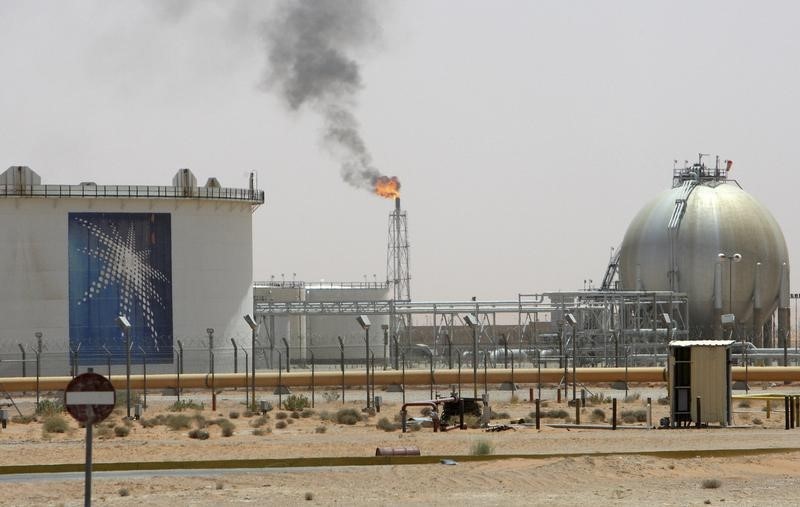Investing.com -- Oil prices fell sharply Monday after top exporter Saudi Arabia slashed the prices of its crude exports, signaling weakening demand as economic activity stagnates.
By 09:10 ET (14.10 GMT), the U.S. crude futures traded 3.7% lower at $71.07 a barrel and the Brent contract dropped 3.4% to $76.08 a barrel.
Saudi Arabia cuts export prices
Saudi Arabia slashed the price of its flagship Arab Light crude for Asian customers to a 27-month low, state producer Saudi Aramco (TADAWUL:2222) said on Sunday.
Prices on February-loading Arab Light to Asia were cut by $2 below the Oman/Dubai regional benchmark, while prices on crude supplied to parts of Europe and the Mediterranean were also cut by as much as $2 to just above the Brent benchmark.
The price cuts come about a month after new production cuts from the Organization of Petroleum Exporting Countries and allies for 2024 largely underwhelmed markets.
In fact, a Reuters survey on Friday found that OPEC oil output actually rose in December as increases in Iraq, Angola and Nigeria offset continuing cuts by Saudi Arabia and other members of the wider OPEC+ alliance.
Speculators cut net long positions
The latest positioning report showed that speculators reduced their net long positions in both the ICE Brent and Nymex WTI contracts over the last reporting week, with the moves predominantly driven by fresh shorts entering the market.
“However, given the increase we have seen in prices since Tuesday, we could have seen some of these shorts covered already,” analysts at ING said, in a note.
Red Sea supply disruptions
The crude markets had posted gains last week following an escalation in the Israel-Hamas conflict, coupled with continued disruptions in shipping activity in the Red Sea.
Shipping giant Maersk said on Friday that it would divert its vessels away from the Red Sea region for the "foreseeable future", with the world's second-largest shipper calling the situation in the area "highly volatile."
U.S. Secretary of State Antony Blinken held more talks with Arab leaders on Monday as part of a diplomatic push to stop the war in Gaza from spreading further.
Markets await more rate-cut, inflation cues
Crude markets are also awaiting inflation readings from Japan, Australia, China and the U.S. this week, which could provide more cues on economic strength and the path of interest rates.
A stronger-than-expected U.S. nonfarm payrolls reading on Friday saw markets sharply curtail bets that the Federal Reserve will cut interest rates early this year- a scenario that heralds limited support for oil prices.
China, the world's largest oil importer, is also expected to show another month of disinflation in December, presenting a weak outlook for global crude demand as the country struggles with a sluggish economic recovery.
(Ambar Warrick contributed to this article.)
